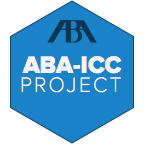In January 2012, the National Movement for the Liberation of Azawad (MNLA), Al-Qaeda in the Islamic Maghreb (AQIM), Ansar Dine, and other armed groups rebelled against the government of Mali. After a military coup which ousted President Amadou Toumani Toure, the various rebel groups overran northern Mali, attacked and killed civilians, and captured major cities Timbuktu, Gao, and Kidal. Additionally, from May to June 2012, AQIM and the Ansar Dine targeted and destroyed historical mausoleums, mosques, and monuments (UNESCO World Heritage Sites) in Timbuktu. In July 2012, Mali, a State Party, exercised its right to make a referral of itself to the ICC on the basis that alleged atrocity crimes had been committed by its nationals upon its territory, and the ICC Office of the Prosecutor opened a preliminary examination.
State Party Referral
A State Party referral is when any country that has ratified the Rome Statute (making them a State Party) refers alleged atrocity crimes to the ICC Prosecutor. The atrocities must have been committed:
- on the territory of the State Party that makes the referral or on the territory of another State Party; or
- by a national from the referring State Party or another State Party.
Most ICC cases have arisen where a State Party has referred alleged atrocity crimes to the ICC Prosecutor that have been committed on its own territory. This is sometimes called a “self-referral”, and includes the ICC investigations into crimes in the Democratic Republic of the Congo, Uganda, the Central African Republic (twice self-referred), Mali, and Gabon.
jump to this section